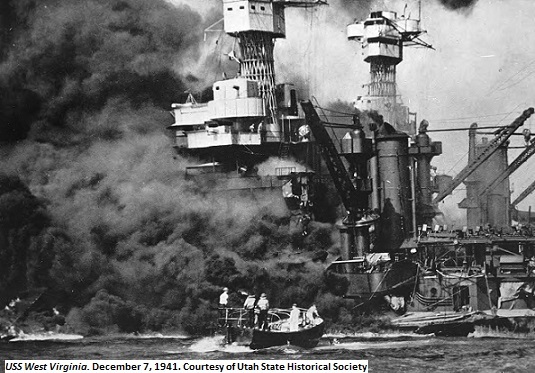Dublin Core
Title
Description
A typical rural Utah boy, Mervyn Bennion became a war hero during World War II. He was awarded the Congressional Medal of Honor for his service on Pearl Harbor.
Born to a large Tooele County family in 1887, Mervyn Sharp Bennion, by all accounts, lived a typical rural Utah boyhood marked by hard work and more than a little adventure. While still a young man, he escaped two separate encounters with runaway horses. Then in 1906, after passing the rigorous Naval Academy entrance exam, Bennion entered Annapolis where he graduated near the top of his class and eventually found himself posted to the USS California, the flagship of the Pacific fleet. Stints on other ships—including some time as second-in-command of the USS Arizona—rounded out his early naval experiences.
By August 1941, Bennion had risen to the rank of captain and had been given his own command—the Battleship West Virginia, operating out of Pearl Harbor. He was on the ship when Japanese aviators attacked the Hawaiian base in December of that year, and, according to reports, was mortally wounded by a bomb fragment. Yet he continued to command the West Virginia from a cot on the deck, until he finally died from his wounds.
Bennion’s heroism elicited responses from his superiors, including the Secretary of the Navy, and eventually earned him the Congressional Medal of Honor, the highest award for valor given to American servicemen and women. The citation that accompanied the medal stated that Bennion had displayed a “conspicuous devotion to duty, extraordinary courage, and complete disregard of his own life … in fighting and saving his ship.”
Creator
Source
Image: USS West Virginia, December 7, 1941. USS West Virginia after attack on Pearl Harbor. Captained by Mervyn Bennion of Utah, who lost his life on ship. Gift of the US Navy. Courtesy of Utah State Historical Society.
_______________
See Kane County Standard, August 17, 1945, 1; Moab Times Independent, August 16, 1945, 1; Topaz Times, August 15, 1945, 1-2.

